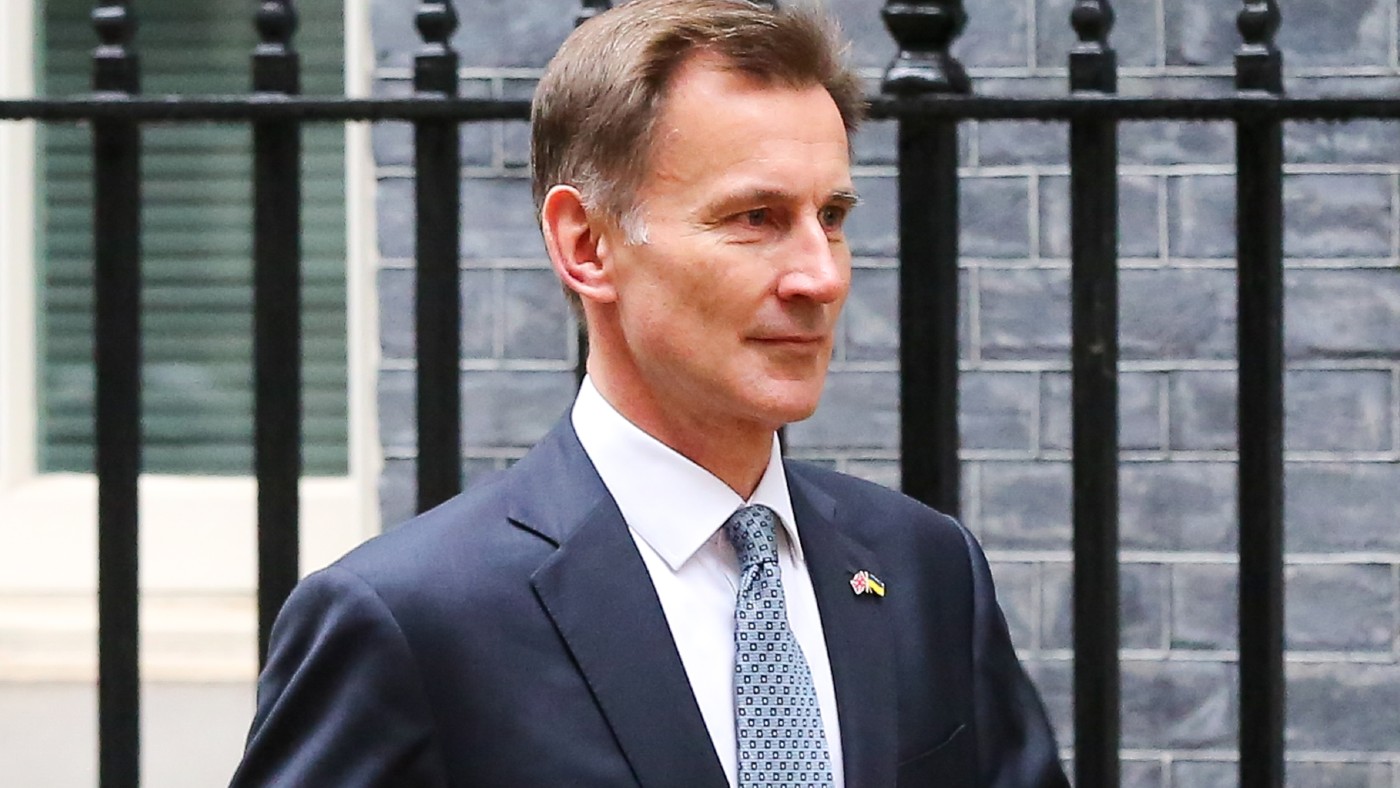Edinburgh reforms: is risk-taking in the City back?
Jeremy Hunt has announced new measures to ‘awaken the Square Mile’

A free daily email with the biggest news stories of the day – and the best features from TheWeek.com
You are now subscribed
Your newsletter sign-up was successful
Just months before “Brexit ejected him from the Treasury”, George Osborne “gave City bankers one final bashing for their sins”, said Simon Foy in The Daily Telegraph.
In March 2016, the then-chancellor introduced a new law allowing senior bankers to be jailed for up to seven years “if their risk-taking was deemed to be egregious enough”. The move terrified City executives; but now, after years of stagnation, priorities have changed.
Last week, Chancellor Jeremy Hunt watered down the “senior managers’ regime” – in one of “30 regulatory reforms” designed “to awaken the Square Mile” and bolster its position as an international financial centre. Dubbed the “Edinburgh Reforms” (because they were announced there), or Big Bang 2.0, the measures will also loosen the capital “ringfencing” rules for retail banks; mandate financial regulators to focus on economic growth and competitiveness; and allow pension funds to invest in a wider range of assets. “Risk-taking in the City is back with a bang.”
The Week
Escape your echo chamber. Get the facts behind the news, plus analysis from multiple perspectives.

Sign up for The Week's Free Newsletters
From our morning news briefing to a weekly Good News Newsletter, get the best of The Week delivered directly to your inbox.
From our morning news briefing to a weekly Good News Newsletter, get the best of The Week delivered directly to your inbox.
Mixed reactions
The plan was applauded in the City. But elsewhere, the reaction was one of horror, said Kalyeena Makortoff in The Guardian. Sir John Vickers, the economist who led the inquiry into the UK banking industry after the 2007-08 crisis, said the Chancellor may be taking Britain down an “extremely dangerous path”.
Vickers is “particularly concerned” about plans to roll back ringfencing rules that protect savers by separating their deposits from riskier investment banking operations. Although targeted at smaller banks, they could also result in larger operators, such as NatWest and Lloyds, “facing fewer restrictions on how they fund their operations”, while enabling them “to sell more complex products to customers”.
‘Debatable’ proposals
Hunt is right, said Lex in the FT: “over-stringent banking regulation fosters the stability of a graveyard”. But while some proposals, such as loosening the EU-imposed Mifid II regulatory regime, are “undeniably welcome”, others are “debatable”.
Rather than abandoning “the principle of accountability” for senior managers, it would be better to enforce it narrowly but strictly. And anything other than “minor tweaks” to ringfencing would be a mistake – it might boost competition, but at the cost of requiring “future bailouts”.
A free daily email with the biggest news stories of the day – and the best features from TheWeek.com
The regulatory cycle follows “a well-worn pattern”, said Patrick Hosking in The Times. “A market crash, or consumer scandal leads to howls for something to be done and an abrupt tightening of the rules.” Then these safeguards get slowly chipped away – until the next crash. “Too much City ‘growth’ and innovation… is built on nothing more than complexity and leverage.” They’ve tried “unleashing the City’s potential before”. It didn’t end well.
-
 Political cartoons for February 16
Political cartoons for February 16Cartoons Monday’s political cartoons include President's Day, a valentine from the Epstein files, and more
-
 Regent Hong Kong: a tranquil haven with a prime waterfront spot
Regent Hong Kong: a tranquil haven with a prime waterfront spotThe Week Recommends The trendy hotel recently underwent an extensive two-year revamp
-
 The problem with diagnosing profound autism
The problem with diagnosing profound autismThe Explainer Experts are reconsidering the idea of autism as a spectrum, which could impact diagnoses and policy making for the condition
-
 Currencies: Why Trump wants a weak dollar
Currencies: Why Trump wants a weak dollarFeature The dollar has fallen 12% since Trump took office
-
 Elon Musk’s starry mega-merger
Elon Musk’s starry mega-mergerTalking Point SpaceX founder is promising investors a rocket trip to the future – and a sprawling conglomerate to boot
-
 TikTok: New owners, same risks
TikTok: New owners, same risksFeature What are Larry Ellison’s plans for TikTok US?
-
 Will SpaceX, OpenAI and Anthropic make 2026 the year of mega tech listings?
Will SpaceX, OpenAI and Anthropic make 2026 the year of mega tech listings?In Depth SpaceX float may come as soon as this year, and would be the largest IPO in history
-
 Leadership: A conspicuous silence from CEOs
Leadership: A conspicuous silence from CEOsFeature CEOs were more vocal during Trump’s first term
-
 Ryanair/SpaceX: could Musk really buy the airline?
Ryanair/SpaceX: could Musk really buy the airline?Talking Point Irish budget carrier has become embroiled in unlikely feud with the world’s wealthiest man
-
 Powell: The Fed’s last hope?
Powell: The Fed’s last hope?Feature Federal Reserve Chairman Jerome Powell fights back against President Trump's claims
-
 Taxes: It’s California vs. the billionaires
Taxes: It’s California vs. the billionairesFeature Larry Page and Peter Thiel may take their wealth elsewhere